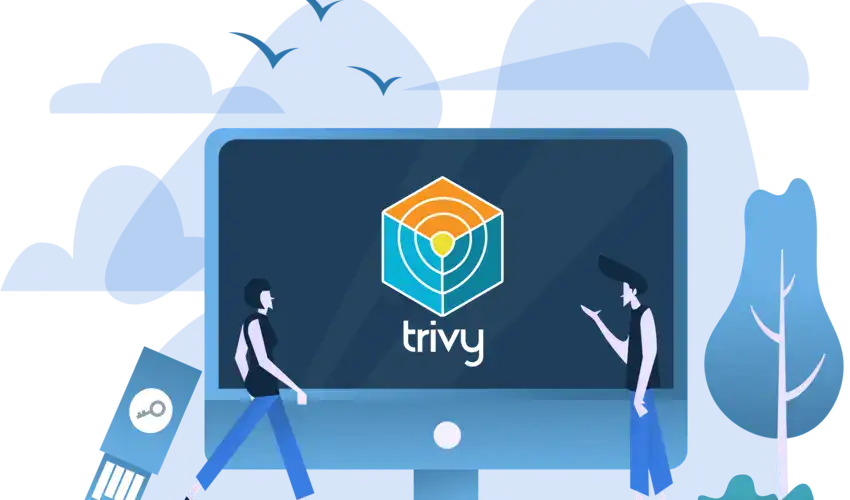Security is now critical. It’s a big concern in the fast-changing world of software. DevOps practices have changed how applications are built and deployed. They emphasize speed and agility. However, this fast-paced environment also presents unique security challenges. Integrating security into DevOps, known as DevSecOps, is essential to ensure that applications are secure from the start. One powerful tool for achieving this is Trivy, an open-source vulnerability scanner. This article explores how to improve DevOps security. It explains how to do this by using Trivy in Azure DevOps. It highlights Trivy’s features, benefits, and practical use.
Understanding Trivy and Azure DevOps
Trivy is a thorough and easy-to-use security scanner. It is made to find vulnerabilities in container images, file systems, and Git repos. Aqua Security developed Trivy. It is famous for its simplicity and effectiveness. This has made it a popular choice among DevOps teams.
Azure DevOps is a set of development tools from Microsoft. It supports the whole software development lifecycle. It includes services for planning, developing, delivering, and operating apps. This makes it a strong platform for DevSecOps.
The Importance of Integrating Security in DevOps
Traditionally, security checks were done at the end of development. They often caused delays and higher costs if vulnerabilities were found late. DevSecOps shifts security left. It puts it into every stage of development. This approach ensures that security is considered from the start. It reduces the risk of vulnerabilities and improves the security of applications.
Key Features of Trivy
Trivy has several features. They make it a great choice for adding security to DevOps pipelines.
- Trivy scans container images, file systems, and Git repos. It looks for known vulnerabilities. It checks against many vulnerability databases. These include the National Vulnerability Database (NVD). This provides thorough coverage.
- Trivy is easy to use. It has simple installation and clear command-line use.
- Trivy is fast and efficient. It minimizes the impact on development.
- Trivy creates detailed reports on found vulnerabilities. They include severity levels and repair recommendations.
Setting Up Trivy in Azure DevOps
Integrating Trivy into your Azure DevOps pipeline is a straightforward process. Here’s a step-by-step guide to get you started:
Step 1: Install Trivy
First, you need to install Trivy on your build agent. You can add a task in your Azure DevOps pipeline to download and install Trivy.
yaml
Copy code
– task: Bash@3
inputs:
targetType: ‘inline’
script: |
wget https://github.com/aquasecurity/trivy/releases/download/v0.18.3/trivy_0.18.3_Linux-64bit.deb
sudo dpkg -i trivy_0.18.3_Linux-64bit.deb
Step 2: Configure the Scan
Next, configure Trivy to scan your container images or file systems. You can add a Bash task in your pipeline to run the Trivy scan.
yaml
Copy code
– task: Bash@3
inputs:
targetType: ‘inline’
script: |
trivy image –severity HIGH,CRITICAL your-container-image:tag
This command scans the specified container image. It reports vulnerabilities with high or critical severity.
Step 3: Analyze the Results
After the scan is complete, Trivy generates a report detailing the vulnerabilities found. You can set your pipeline to fail if it finds any high or critical vulnerabilities. This ensures that insecure code does not move to production.
yaml
Copy code
– task: PublishBuildArtifacts@1
inputs:
pathToPublish: ‘trivy-report.json’
artifactName: ‘TrivyReport’
You can then review the Trivy report in the Azure DevOps artifacts section and take necessary remediation actions.
Benefits of Using Trivy in Azure DevOps
Improved Security Posture
Adding Trivy to your Azure DevOps pipeline ensures that security checks are a key part of your development process. This proactive approach helps find and fix vulnerabilities early. It reduces the risk of security breaches.
Automation and Efficiency
Automating vulnerability scans with Trivy streamlines security. It lets your team focus on writing code without compromising security. The integration with Azure DevOps ensures that security is monitored continuously. It is enforced throughout the development lifecycle.
Compliance and Governance
Many industries have strict regulatory requirements regarding security. Trivy helps keep things compliant. It gives detailed reports on vulnerabilities. It also ensures that security standards are consistently met.
Cost Savings
Finding and fixing problems early in development is far cheaper than fixing them later. Trivy helps avoid the high costs of late-stage security fixes and potential breaches.
Real-World Use Case
Trivy’s use of Azure DevOps is a prominent example. It can be seen in the deployment of containerized apps. Consider a financial services company developing a new payment processing application. Security is paramount, given the sensitivity of economic data. By integrating Trivy into its Azure DevOps pipeline, the company can:
- Ensure Secure Code Deployment. Trivy scans container images for vulnerabilities before deployment. This prevents insecure code from reaching production.
- The reports help the company meet the rules. They also keep their security strong.
- Automate Security: The scans reduce manual checks. They let the team focus on innovation while keeping strong security.
Conclusion
Today’s development is fast-paced. Integrating security into DevOps is essential. It ensures the delivery of secure and reliable apps. Trivy provides a powerful, easy-to-use solution for vulnerability scanning. It is an invaluable tool for DevSecOps. Using Trivy in Azure DevOps can improve security, efficiency, and compliance. This will shape a more secure future for software development.
Trivy is seamlessly integrated into Azure DevOps pipelines. This ensures that security checks are automated, even, and effective. As a result, development teams can deliver high-quality applications confidently. They know that security is built into every step of the process. Embracing Trivy, an AI manufacturing solution, boosts security. It also paves the way for more innovative and secure software practices.



